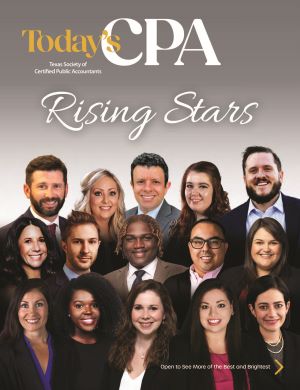November 10, 2023
Special-Purpose Acquisition Companies Growing More Popular But Present Unique Accounting Issues
The use of special-purpose acquisition companies (SPACs), also known as blank check companies, has increased exponentially over the past few years. They allow investors to take companies public without the costs and delays associated with traditional IPOs. A SPAC is created to pool investor funds to accomplish a merger or acquisition within a specified period of time. At creation, the acquisition target is generally not known to the investors. Since 2020, more than half of U.S. IPOs have utilized the SPAC structure.
Before we discuss the typical SPAC structure, let’s examine the advantages it offers over the traditional IPO. The SPAC is registered with the SEC and is a publicly traded company. As such, the public can buy its shares; hence the nickname “poor man’s private equity fund.” The SPAC can typically go public in just a few months, shortening the time typically required for a conventional IPO of six months to more than a year. However, it lacks an active business since the acquisition of a target has not been completed.
Given the simplicity of the SPAC balance sheet, preparation for going public is both quicker and less expensive. This is not to say that the costs associated with taking the target company public are avoided fully. Financial information of the target is generally required to be presented to the SPAC investors to receive final approval of the transaction and the target must be “public ready” upon completion of the merger.
A SPAC transaction generally follows a well-established path:
- Units comprised of Class A shares and some fraction of a warrant are sold to investors for $10 upon the SPAC going public. This will generally compose about 80% of the share capital.
- The sponsors are awarded founder shares and warrants for a nominal investment to make up the remaining 20% of the share capital.
- The proceeds are held in trust to be used for the acquisition of a target within a limited time frame; usually less than 24 months.
If the acquisition is not completed within the window, the investors’ shares are redeemed (plus interest) from the funds in trust. However, the sponsors can generally induce the investors to extend the acquisition deadline by making a contribution to the trust fund.
Investors can sell their shares and/or warrants on the secondary market at any time. Sponsors are generally required to retain their shares and warrants.
Once a target is identified and the merger is pending, investors can opt out by demanding redemption of their shares. They can retain the warrants even if the shares are redeemed. For those who participate on the initial offering of the SPAC shares, they are therefore guaranteed the return of their initial investment. Investors buying the shares on the secondary market receive no warrants and pay market price.
The warrants (typically with a strike price of $11.50) generally have a term of five years from the date of the acquisition. The SPAC may call the warrants if their trading price for a period of days (usually 20 -30) exceeds a stated price, which is generally $18. This call feature basically forces holders to exercise the warrants. Sponsor warrants do not include the call feature. The public warrants can only be exercised for cash while the sponsor warrants may be for cash or shares.
Investors should be aware that their shares will typically be diluted. The sponsor shares are awarded without cash investment, which results in dilution of the investor shares of up to 20%. Redemption of Class A shares from investors who opt out prior to the merger can typically run as high as 40 – 50%. Therefore, at merger, only 40% of the share capital may actually be fully cash funded. If the price of the shares rises, the warrants are then likely to be exercised at the $11.50 strike price, further diluting the return of the initial investors.
Recent SEC scrutiny of the warrant accounting has resulted in restatements by several SPACs. Many SPACs had concluded that the warrants should be classified as equity. However, to be classified as equity, the company must evaluate the instrument under a two-step process: (1) the contingent exercise provisions and (2) the settlement options. And it is the latter that has prompted the SEC to disagree with the conclusions of the reporting entities.
To qualify as equity, the settlement must be a “fixed-for-fixed” calculation with the exception that any adjustments are based on standard inputs used to determine the value of “fixed-for-fixed” equity forwards or options. The sponsor options are not redeemable and therefore fail the exception since “type of holder” is not a standard input.
The public warrants often fail the exceptions since the SPAC fails to control the ability to settle with shares. This failure is based on the provision in most SPAC warrant agreements that allows the holders to elect to receive cash in the event of a tender or exchange of the underlaying shares in the context of a change of control.
SPACs failing the exceptions have been required to restate their financials classifying the warrants as derivatives in the liability section of the balance sheet, which requires revaluation at every report date. By the time a restatement is identified, the acquisition of the target has likely been completed, making the restatement an event of note to the investors.
Recently, there has been an increase in the number of SPACs opting to liquidate rather than close acquisitions. Given the complexities of the unique structures of SPACs and the SEC’s accounting treatment evaluation, only time will tell if they remain popular acquisition vehicles.

About the Author: Don Carpenter, MSAcc/CPA, is clinical professor of accounting at Baylor University. Contact him at Don_Carpenter@baylor.edu.























